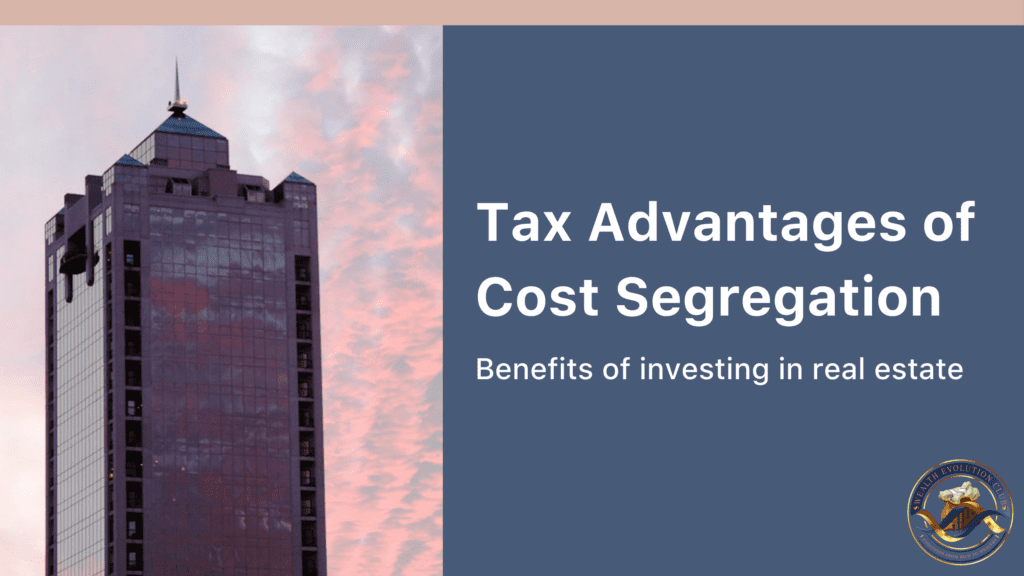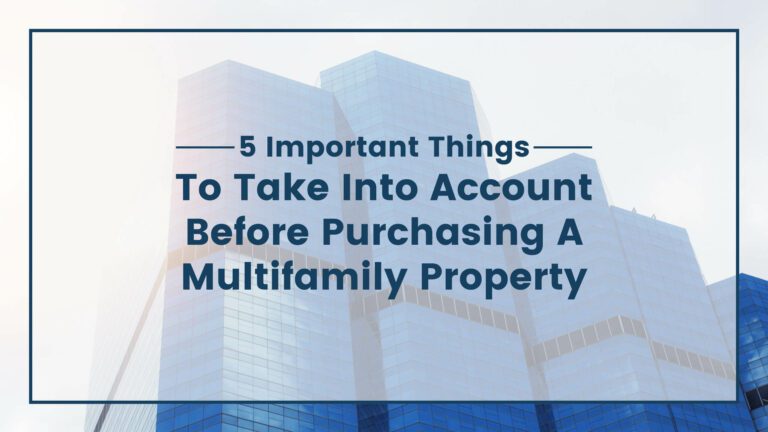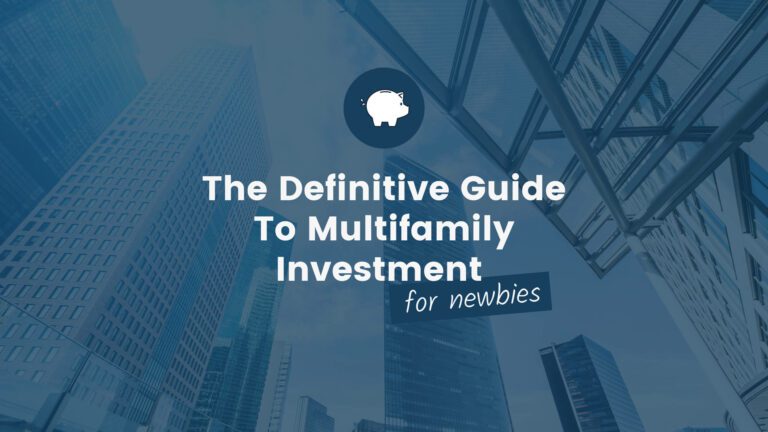Discussion between Dr. Meetu Bhatnagar, CCIM, and Yonah Weiss, Cost Segregation Expert on tax advantages of doing Cost Segregation.
Dr. Meetu: Yonah, what is cost segregation? Will you please share this with our listener?
Yonah: I think I can do that. It’s really something that is not as complicated as it sounds. Cost segregation is a fancy way of saying a very advanced form of depreciation. And depreciation is a tax deduction that you get on your commercial or investment property. And basically, when you buy a property, the government incentivizes you by giving you a tax deduction, based on the principle that things go down in value as time goes on. That’s called depreciation, right? But your buildings probably actually going up in value as time is going on. So it’s not really depreciating. Nevertheless, they give you this tax deduction that says you can write off the entire value of your property over this long period of time 27 or 39 years. That’s called depreciation. Cost Segregation is really just segregating that cost, right, breaking down that cost into different buckets, two different categories that depreciate at faster rates. And it’s a very detailed engineering process that allows us to identify things in the building that actually depreciate faster than you would have been depreciating it meaning taking those tax deductions at that very long period of time.
Dr. Meetu: When is the best time to do this cost segregation study?
Yonah: It’s relative, usually most people get it done in the first year, they’re trying to get it done as soon as possible, because they want to set up the property tax deductions from the beginning in the right way. However, it does not need to be done in the first year. And in fact, certain times it may be more beneficial to wait. For example, if you don’t have enough income coming in, you don’t need those extra tax deductions, it may not make sense to get it right away. Also, some people may just want to wait to even out the playing field a little more. And maybe they didn’t even know about cost segregation. Another great example, people didn’t know about it. And here you are years later, you can go back retroactively, do a segregation study, meaning get those tax deductions that you missed that accelerated depreciation that you missed over the past several years, and you can get that this year.
Dr. Meetu: What kind of properties qualify for this cost segregation? Suppose I have a portfolio of 15 single family homes? Does it qualify? Or do I have a quad Plex or 100? unit apartment complex? Does that qualify for it?
Yonah: Yeah, really, any type of residential or commercial property, it doesn’t really matter what type of property is can qualify, because the qualifying is really just using the depreciation utilizing that and front loading or accelerating certain portions of that depreciation. So really any type of property besides for your personal residence, that’s the only thing your personal residence, you don’t get the tax deduction, depreciation for that. But qualifying is one thing, meaning getting that depreciation is one thing, the real question is, can you use it right? Are you going to be able to benefit from it? And how much of it can you actually use? So, we talked about accelerating depreciation, allocating certain portions of the property to these faster schedules? Typically, we’re talking about between 10 and 30% of your actual purchase price will go into that faster depreciation that you could take in the first five years of first year even. So you’re talking about which types of properties will qualify? Well, it’s going to depend a lot on what’s your purchase price? And how much of that percentage, is it going to be worth it?
Dr. Meetu: What’s the ballpark number that we should keep in mind, for the properties that are worth going for Cost-Seg? Is it 1 million or something like that?
Yonah: My rule of thumb is usually any property purchase for over a half a million dollars, even that small, is really worthwhile to look into. And we provide in most cost segregation, companies will provide an upfront free analysis, just to see if it makes sense. It’ll be kind of a feasibility analysis of sorts, where we’ll take the data from the property without actually visiting it without doing the full engineering study. But just based on our data, and the data of the property to know what you can expect, if you do a full. Is it worth it? Is it worth spending a few thousand dollars to get this full study done? What’s my outcome going to be? So, on off 10%? Even the bare minimum of a $500,000? property? You’re talking about an extra $50,000 of salary depreciation? Isn’t? That’s not nothing, honestly, something to go all in on, but it’s definitely worthwhile to look into.
Dr. Meetu: What do you think about construction projects? Suppose I am building a hotel Do you think it’s worth going for? And what is the process for the cost-segregation of new build up? Is it like something different? And what is the best approach?
Yonah: It’s very similar. In fact, you’re able to get just like you would on what we do with the engineering process is really on an acquisition, we’re reverse engineering the property, and we’re saying, okay, you buying this whole building based on this purchase price, we don’t have to see and come in and identify all the little details, he will How much is this roof, relatively to the whole property. Whereas when you’re doing a new construction, you have all of the details, you have all the invoices, you know, how much was spent. And that process is a little easier because the engineers can actually allocate all those individual items into this faster depreciation schedule. So, it can be done on a new construction. No problem.
Dr. Meetu: What do you think? How much does it cost? Any ballpark number do you have? Because it sounds like it’s quite complicated. And with that, engineering studies involved, it could be quite expensive? Please share your thoughts on it.
Yonah: Yeah, it is, can be a little bit expensive. But there’s a lot of misinformation going on out there. I’ve seen people write articles and say, Well, this only makes sense for huge commercial buildings. It costs like $50,000 to get this done. It’s not typically and I’m just talking about our data right now, today. 2021. Okay.
Similarly, for multifamily properties or commercial properties, typically we’re ranging between four to $6,000. a onetime flat fee for that type of property, smaller single families, we actually have a flat rate we’re doing now for $1,000 a piece, which means it can be done, there’s a lot less work to be done, especially when we’re talking about a portfolio, large numbers, single families, it makes a lot more sense. Whereas large commercial buildings, let’s say, a 300,000 square foot office tower may be a little more expensive. Okay, that’s where you’re going to get into these, because the scope of work involved is going to be so much more than multifamily property, for example, the price is not based whatsoever on the continuance of the tax savings. Because that will be virtually, you’re telling the IRS, I think you should get this much tax savings, and I’m going to take a cut out of it. That doesn’t make any sense, right? That seems like funny business. But so it’s based, you know, it’s kind of flat fee based on the scope of work doesn’t matter if the building was purchased for a million dollars, or $10 million, or $50 million, the fee is probably going to be pretty much the same. Okay.
Dr. Meetu: So how much should I expect to save? Suppose I’m doing an acquisition of a $40 million portfolio? So, what should the amount that I will save if I go for this cost segregation study?
Yonah: Yeah, like I said, typically we’re looking between 10 to 30%. And multifamily properties are usually closer to 25% is pretty much the average for the reallocation. So, the first thing we need to do is we need to separate a certain amount for land because land does not depreciate. And then so from that $40 million, you may still have, let’s say, take off 20% for land, you’re still left with right a large portion, you’re still left with 36 million, something like that a large amount that you can now depreciate, you take 20% of that 25% of that, I mean, you’re looking at easily, I don’t know something just to do the math in my head over here, but probably something close to eight to $9 million of accelerated depreciation on a project that size.
Dr. Meetu: Ok, so if I raise like $10 million as an equity, I will be able to get at least 80 to 90% tax benefits.
Yonah: Yeah, and that’s really interesting, because when you’re doing the equity, it’s really important to remember that the depreciation on the property is based on your purchase price, it’s not based on how much money was put in, okay, it’s based on the purchase price. Now, if you have a large percentage of non-recourse debt, you leverage on that property, you’re getting the benefit of that debt on the depreciation because you’re buying a building for $40 million, and only 10 million is being put in. That means you’re getting $40 million of depreciation. And so your equity in that property increases the amount of depreciation you have. Whereas if you went all cash, all in $40 million of cash, then your depreciation will also be based on that the percentage of money would be less, according to the equity sponsors.
Dr. Meetu: Can cost segregation be used to offset active income from other businesses? Or is it used to offset the rental income only?
Yonah: That’s a great question. And this is probably the hottest topic when it comes to cost segregation. And I alluded to before, it’s not about how much depreciation you can get. It’s more about how much you can use. And so this is the most common question I get. There’s something called a real estate professional status. And this is a really important status because this is really going to determine how much of the depreciation you can use. Typically speaking, rental property income is considered passive income, okay goes in your schedule, it’s tax differently than active business income. depreciation is a passive deduction; this is allowed to offset your passive income. So, first and foremost, depreciation goes to offset your rental property income, you may have 10 properties and that depreciation form one can be used across the board on all your rental properties or other passive business investments. However, active income is treated differently, and depreciation is not allowed, right? You have limitations to how much of that depreciation you can use, if any, unless you have this magical card, right that says you are a real estate professional status, which means you spend the majority of your time in the real estate trade or business. Once you have that. You no longer have that passive loss limitation, which means you can use any extra depreciation, beyond your rental property income to offset your active income from any other source, you or your spouse.
Dr. Meetu: And what happens if I am not able to utilize all that negative K1or passive loss in present year? Can I take it further into the forthcoming years? Correct?
Yonah: Yes, it carries forward. So, any extra depreciation you don’t use, that passive loss carries forward you can use in a future year.
Dr. Meetu: Suppose I bought a building in the past? Can I still do cost segregation on that?
Yonah: Yes, absolutely. And so, this is really something that can be done without even having to amend your tax returns, you’re able to do what’s called catch up depreciation by changing the accounting method saying I’m now going forward, breaking out the depreciation to different lives, different categories, you can do that going forward, you can catch up whatever depreciation you missed from previous years, and take it this year.
Dr. Meetu: One of our listeners was wondering, isn’t that our CPA is already doing cost segregation for us?
Yonah: Likely not. Yeah, absolutely. Usually not. So cost variation is because it requires the engineering component to it. It’s really impossible for an accountant to properly do this, the IRS has an entire guideline called the cost segregation audit techniques guide. And in that there’s a whole list of components that need to go into a proper cost segregation study, anyone can can say make up and say, Well, I think this amount of depreciation should be taken. But if it doesn’t have the proper data, or proper, you know, analysis to back that up, and to show where this is coming from, absolutely, we’re getting those numbers from then you’re going to be stuck when it comes to you know, God forbid, ever in the event of an audit. So, accountants cannot do this on their own, they need to use an engineering component, some of the largest accounting firms in the country, have engineers in house. So, in that case, it’s not to say that accountants can’t do it, per se, but they need to have that. So, if they are doing it in house, there are definitely you don’t have full accounting firms in the country that do this in house. But it’s because they have those engineers in house.
Dr. Meetu: So, while vetting a cost segregation study guy, what are the questions I should ask them to qualify them?
Yonah: Oh, well, cost segregation guy, he definitely should have a big beard (Giggles) I mean, that’s right, you want to make sure, you want to make sure that you’re goanna get the highest quality and quality comes from basically, two or three things. Number one is that they have experience, okay, they’ve been doing this for years, they have experience in auditing, have their studies ever been tested by an IRS audit, that’s something that you want to make sure you have to support. So, in their language of the engagement, it should say something to the sort of, we have this audit protection, we stand behind our reports we have, etc, at no extra charge. So that’s something you should make sure the experience is paramount, because without the engineering component, and the accounting component, that dual in-house components, you’re basically tossing it up and saying, well, it’s either goanna be focused on one or the other, and you can’t have the best of both worlds. The third and final thing that I think is most important to look into, is to see what other people think about this. There are plenty of people out there to compare this to, how does this hold up? How is everyone’s experienced in terms of the actual operations, the terms of the actual turnaround, time, cost, etc.? These are important things, you know, when you’re running any type of vendor?
Dr. Meetu: When I sell my property, does it have any impact? Yes, when you sell a property, you have a very big impact. First of all, you have a couple of different things that happen when you sell a property. Number one, you have a tax, that’s called capital gains, tax, capital gains tax, you’re taxed on the amount of gain, if you made a profit on the sale, and everyone’s heard of this, right, you made a profit, you have to pay a certain tax on that, you have something else called depreciation recapture tax. This is usually also called right on recaptured gain. And so, there’s basically the amount of depreciation that you’ve taken over the course of ownership, you now have to pay a tax on that amount, or you’re subject to that tax at the time of sale. So, it’s definitely important to note and to be aware of that, if you’re selling a property within the first five years of ownership, you’re going to probably have a higher subject of that tax. If you did a cost segregation study, then if you didn’t, however, as obviously is most important to understand the benefits of the congregation in being the time value of money. Usually not paying that tax in those earlier years, is worth a lot more than having to face that tax on the sale. And when I say face the tax on the sale, I want to make that clear. It’s not like you are bound in chains. Everyone knows and we’re talking about this subject and you for sure know this, that understanding of the tax code and understanding.
These tax benefits, and many others like it is really the way to continue building that wealth. So just like there’s cost segregation that you can do on the acquisition of a property, there are other tax strategies that you can make sure to employ on the sale of a property so as not to be hit with a large tax bill.
Dr. Meetu: So, do you think like doing this cost segregation study can put me at risk, or someone who is doing at a risk of an IRS audit?
Yonah: This does not put you at a risk of an audit in any way, shape, or form, because this is not something that is foreign to the IRS. This is something that not only is it directly was created by and governed by the IRS, but it’s actually the proper way to depreciate your property, literally, you’re supposed to do it this way. The only reason that they don’t enforce it, and make you do it this way is well, first of all, because it’s goanna cost you extra cash in your pocket to get something like this done, because it involves a third party in order to do that. So, they can’t force you to do that. However, they also know. And I’m paraphrasing from one of my favorite books, a tax-free wealth from Tom wheelwright. He says there that the reason why the government doesn’t enforce this is because they know that the laziness of the taxpayer, and or their accountants will just create more revenue for the US Treasury. So, they’re not going to tell you to take more deductions, right, no one’s holding your hand and saying, Oh, you should take this deduction, and that deduction and everything else, even though they know you can do that. So yes, it does not put you at risk. In fact, doing it this way is actually the proper way.






